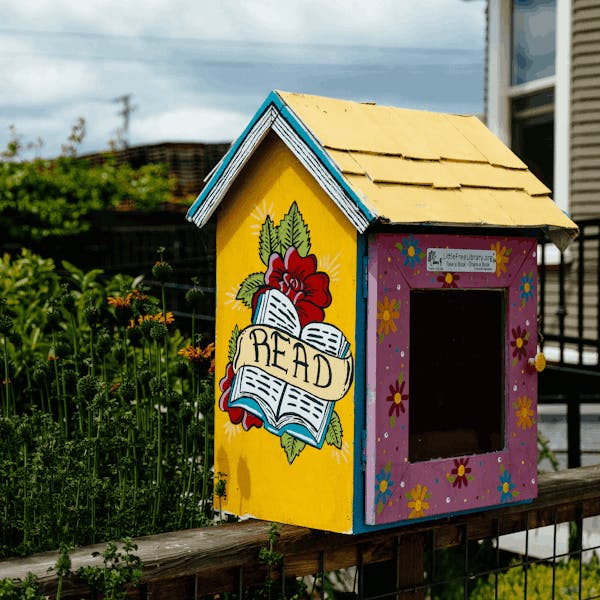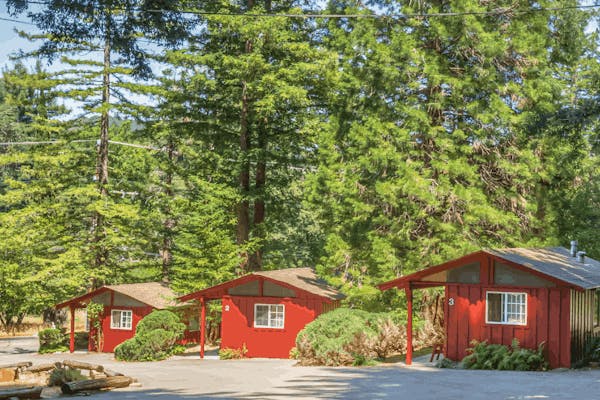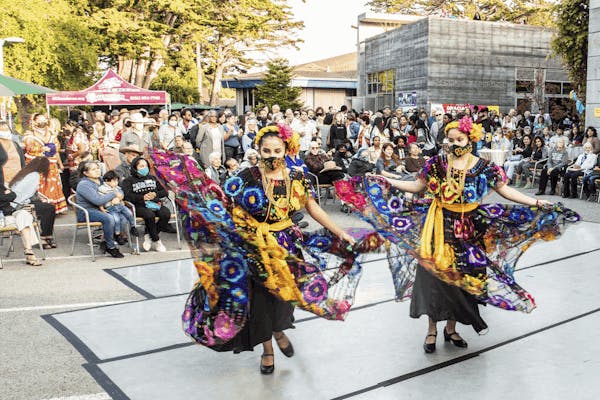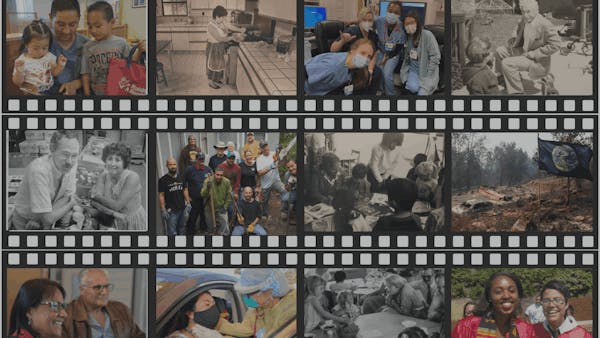
Celebrating four decades of service to our community
40th Anniversary Stories
Forty years ago, during the floods of 1982, a few concerned people came together and birthed a new home for local giving. A place people could rally around issues too big to solve alone. Where people with a love for this community could chart a legacy of good, for years to come.
Throughout our 40th anniversary, each monthly newsletter featured a spotlight story, celebrating deep-rooted relationships with nonprofits and generous donors who together, care for the people and places of Santa Cruz County with tenacity and compassion.
Together, over the last four decades, we’ve done A LOT of good.
Davenport Service Resource Center
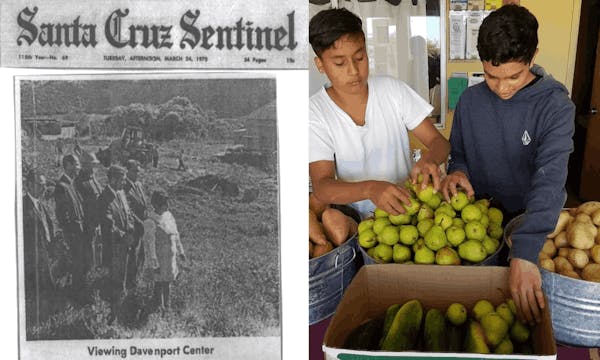
Since 1970, the Davenport Resource Service Center has served north Santa Cruz County from Davenport, to the local farms, and the mountain community. Under the umbrella of Community Action Board’s (CAB), DRSC provides a lifeline of services for youth, seniors, families, and farmworkers.
Since our founding in 1982, many community members have given to CAB through their donor-advised fund (DAF), supporting their mission to eliminate poverty and create social change. We’ve worked closely with DRSC on meeting pandemic needs through our COVID Relief Fund and the needs of fire survivors through CZU Recovery Fund grants. In April, we awarded CAB a three-year $50,000 community grant to support general operations, including DRSC’s food program. Prior to the disasters of 2020, DRSC served about 140 households every month through a weekly food distribution and daily food pantry. Since then the need continues to grow.
Isaí Ambrosio, program director for DRSC says, “The Community Foundation’s support has been essential. During the early days of the pandemic, we were able to buy food items that were not available from Second Harvest including meats, fruit, yogurt, milk, and infant formula. And after CZU, we’ve been able to help fire survivors with their immediate and longer-term needs.”
The Foundation’s support also helped build the food program’s infrastructure. “We’ve been able to purchase canopies, tables, and a commercial freezer and fridge for the pantry,” Isaí says, all critical tools for being able to keep up with the increasing demand. “Thanks to the Community Foundation,” he says, “DRSC has been able to provide financial support and purchase supplies for this community, which is working hard to rebuild itself.”
Encompass Community Services
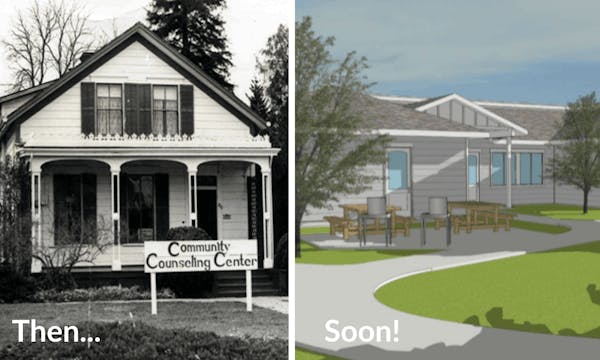
With 40 programs spanning from early childhood education to counseling to substance use recovery, Encompass Community Services has guided youth, individuals, and families through life’s transitions and challenges with expertise and compassion for decades. And the gratitude runs deep.
Since our founding in 1982, community members have given to Encompass often through their donor-advised funds, many out of thanks for how a program set a loved one’s life on the path to healing.
In April, we awarded Encompass a $40,000 community grant for the new Sí Se Puede Behavioral Health Center, a project to expand high-quality substance use disorder and mental health treatment services to 1,300 community members every year. In December 2022, Encompass received $9.3 million in state funding to build the new center. [Read this Lookout story for more about how Sí Se Puede has helped people for generations.]
With the opioid crisis right here at home, we want our community to be one where no more lives are lost and people seeking help are greeted with expertise and care. Sí Se Puede brings us one step closer to hope for families at this critical time
Jacob's Heart
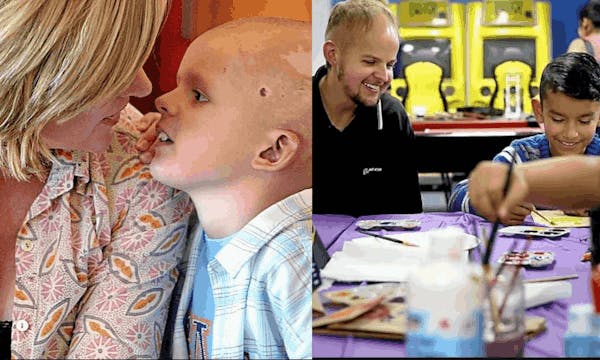
Sisters June Borina Schnacke and Mary Ann Borina Radovich never met cancer survivor Cole Rossi. They never knew about an organization called Jacob’s Heart which since 1998, has supported Cole and thousands of other children and their families navigate the challenges of cancer treatment.
But what the Borina family did know is that they loved the people and places of Santa Cruz County and wanted to help care for them far into the future.
The charitable legacy of the Borina family is a cornerstone of our Community Grants program and provides steady funding inthe Pajaro Valley and beyond for nonprofits that support youth, provide care for those at end-of-life, and places that preserve local history. For almost 25 years, thanks in part to the Borinas, Jacob’s Heart has helped over 3,500 children and family members as they face the unimaginable.
Life Lab
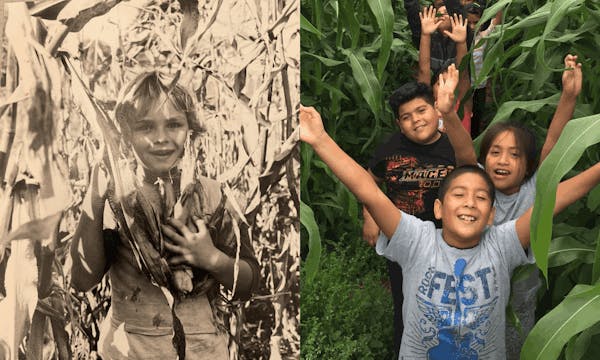
In 1980, Amy Harrington (then Amy Katzenstein-Escobar) was a first-year teacher at Salsipuedes School when she heard about Life Lab, a new nonprofit developing garden-based learning curriculum. A passionate gardener and bilingual educator, Amy quickly volunteered to get involved. She said, “A lot of my students were children of fieldworkers but were embarrassed by that and didn’t really know what agriculture was. In science, we study how plants grow because it’s one of the most important things we do as a society. I wanted them to understand how important their parents’ work was.” Amy and a friend built planter boxes that she put in front of her classroom and with that, she became the first pilot teacher in what has now become an international movement of garden-based experiential learning.
Since our founding in 1982, many community members have given to Life Lab through their donor-advised funds (DAF). People are inspired by students’ increased connection to nature–even more important as youth recover from distance learning during the pandemic. We awarded Life Lab a$40,000 community grant in April to help expand their garden classrooms and programs to all 16 Pajaro Valley Unified elementary schools by 2024.
After Salsipuedes, Amy took her planter boxes with her to Alianza school. By the time she taught at DeLaveaga, Bayview, and Mountain school, there were established Life Lab gardens she could teach in. Now retired, Amy is still passionate about Life Lab and gives to the program regularly through her DAF. “I really believe in Life Lab. Teachers come in with different backgrounds and skill sets. For gardeners like me, it’s a natural fit. But some teachers have never even touched the soil. Life Lab has made the curriculum very accessible for everyone and I love that.”
Mountain Community Resources
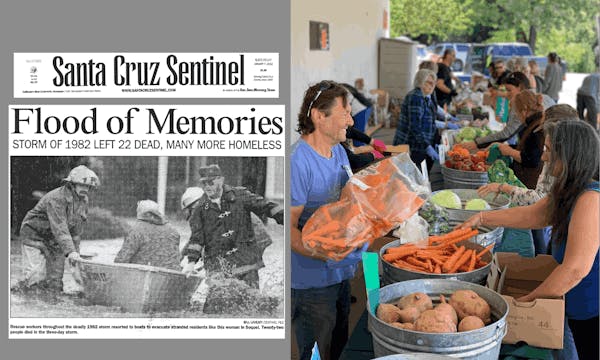
The San Lorenzo Valley has always been a place where neighbors help neighbors. According to Valley Women’s Club board member Barbara Hanson, Mary Hammer used to put up signs along Highway 9 back in the day asking residents, “If this bridge went out, how would you get home?”
In the wake of the 1982 floods and mudslides, Mary, an Honorary Trustee of the Community Foundation, rallied fellow leaders to help form Valley Resource Center. They distributed critical supplies and support for those in need, and they never stopped. Forty years later, the operation now known as MCR delivers food, clothing, walk-in services, counseling, legal assistance, and parenting classes. Now, as valley residents rebound after the pandemic and CZU fires, MCR, and parent organization Community Bridges, are on the ground, tailoring programming and coordinating resources to strengthen the entire valley community.
Mary has partnered with the Community Foundation to care for the needs and dreams of her fellow valley residents, first with her donor-advised fund and then helping start a permanent resource—the endowed Fund for the Future of the San Lorenzo Valley. The fund is fueled by donations from community members which are then invested. The investment earnings then get granted to effective programs meeting the needs of San Lorenzo Valley residents.
Pajaro Valley Arts
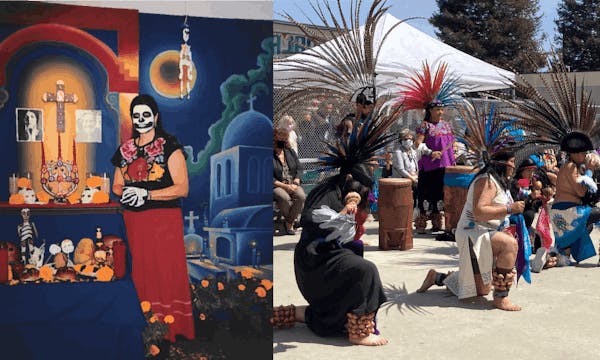
Diane Porter Cooley had a deep and abiding love for the Pajaro Valley, her family’s home for generations. Soon after the Community Foundation was established, Diane started the Thomas and Bernice Porter Fund for the Pajaro Valley in honor of her parents and to nurture the arts, preserve history, and protect the environment of south county for generations to come.
A consistent grantee of the Porter Fund has been Pajaro Valley Arts, which infuses the community with arts, education, and events that celebrate the rich history and diverse communities of the valley with annual Day of the Dead celebrations and collaborative exhibits such as the Alma Sagrada exhibit in partnership with the Amah Mutsun Tribal Band.
Pajaro Valley Shelter Services
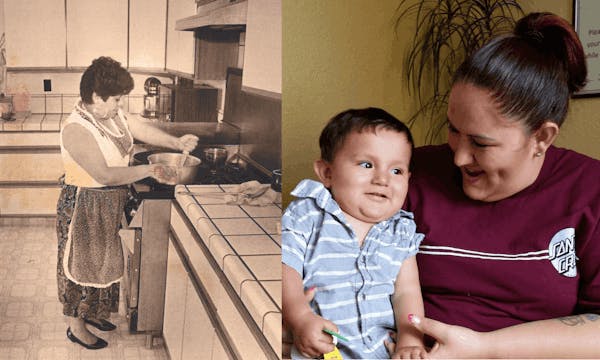
In 1989, the Loma Prieta earthquake destroyed the kitchen at Pajaro Valley Shelter Services (PVSS) kitchen. PVSS was established as a small shelter for women and children six years prior. The young nonprofit asked us for help rebuilding. We were young too, working hard to help charitable visions get established and grow while supporting long-term recovery from first the 1982 floods that devastated the San Lorenzo and Pajaro Valleys, and then the earthquake.
An early grant from the Community Foundation helped PVSS rebuild the kitchen and through the decades, they’ve become a leading nonprofit partner for stable housing and supportive services in the Pajaro Valley. Now during the COVID-19 pandemic, PVSS is one of many long-standing partners we’re funding to keep families housed, fed, and financially resilient.
Queer Youth Leadership Awards
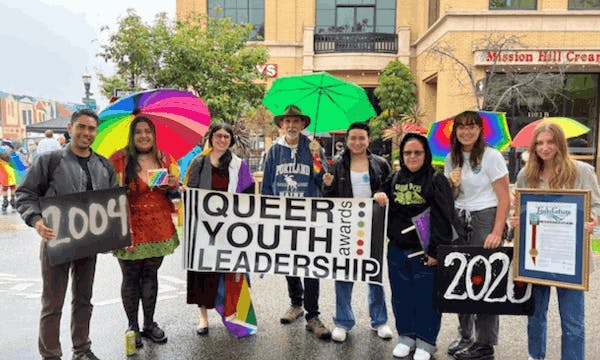
“It wasn’t easy,” said Mireya Gomez-Contreras of growing up queer in Watsonville in the late 1990s. Now Deputy Director at Arts Council Santa Cruz County, Mireya said Queer Youth Leadership Award she received in 1997, “deepened my sense of belonging within a community of people. It connected me to other queer youth.” (Watch QYLA’s anniversary video.)
That same year, we became one of the first community foundations in the U.S. to launch a social justice initiative to benefit the lesbian, gay, bisexual, and transgender community. When local folks saw a clear need to support LGBTQ+ programs and create a permanent source of funding, we partnered together to launch the Diversity Partnership Fund.
Thanks to the gifts, pledges, and fundraising efforts of many, the now $1 million fund has awarded over $718,000 in grants. The fund has invested in the success of the Diversity Center, the Queer Youth Task Force who awards the QYLAs and leads the Safe Schools Project, and many more programs creating safer environments for youth and seniors, strengthening alliances, promoting respect, and enhancing LGBTQ+ services across Santa Cruz County.
Reading is Fundamental
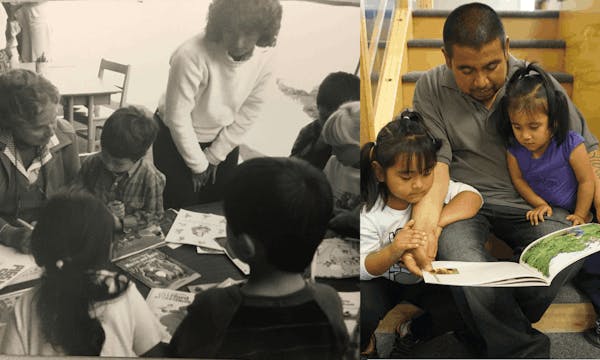
Committed community leaders, Jean and Stephen Wyckoff were deeply invested in educational excellence, knowing that it provided a path towards a better future with literacy as its first step. When Jean died in 1984, Steve started the "Reading is Fundamental" Fund to support literacy programs in local schools. When Steve passed away in 1992, his name was added to the fund.
Grants from the Wyckoff’s fund have helped PVUSD’s Raising A Reader program reach 4,000 young children with bilingual literature, and teachers are seeing early literacy gains as a result. As it has since 1984, the fund will continue to honor the Wyckoffs with grants that help nurture children’s love of reading.
Second Harvest Food Bank
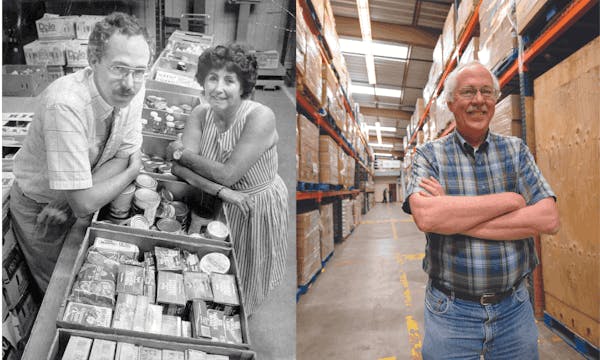
When the Community Foundation was founded, we had a ready partner in Second Harvest Food Bank (2H), which had been founded 10 years earlier as the first food bank in California and just the second in the nation. Some of our earliest donor-advised grants went to 2H in 1989 to support relief efforts after the Loma Prieta earthquake. Since then, 2H has received $3.3 million in grants from the Community Foundation, including payments of earnings from their own agency endowment established with us in 2007.
Hired as a truck driver for 2H in 1978, Willy Elliott-McCrea moved up through the ranks to warehouse manager, then director in 1988, and five years later, CEO. In recognition of his retirement in 2022, we honor Willy's dedication to helping make sure that everyone in Santa Cruz County has access to fresh, healthy food. And, we are truly excited to welcome Rise Together member Erica Padilla-Chavez as the new CEO!
How do you want to care for the community you love?
We can help you give to the causes you care most about.